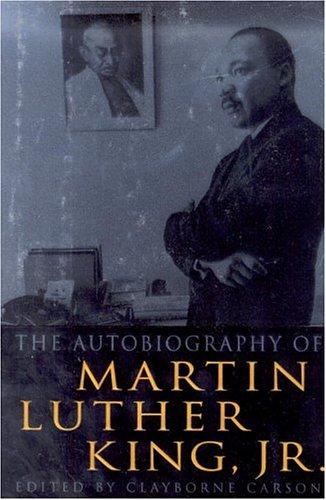Stepping into the pages of The Autobiography of Martin Luther King, Jr., compiled by Clayborne Carson and published in 1998, is like sitting at the feet of a legend. This isn’t a traditional biography, but rather a carefully curated self-portrait, drawn from King’s own writings, speeches, and interviews. Carson, a distinguished scholar and the director of the Martin Luther King, Jr., Research and Education Institute at Stanford University, masterfully weaves these fragments together, creating a cohesive narrative that feels both intimate and powerful. The book’s continued relevance, decades after King’s assassination, lies in its ability to illuminate the ongoing struggle for racial justice and equality, making it a crucial text for understanding not only the past but also the present. This book offers a direct and unfiltered look at the thoughts and motivations of one of history’s most influential figures. Buy it here.
The book’s structure is chronological, leading us from King’s early life and education in the Jim Crow South to the pivotal moments of the Civil Rights Movement. We witness the development of his philosophy of nonviolent resistance, influenced by figures like Mahatma Gandhi, and see how his faith played a critical role in shaping his approach to activism. The book doesn’t shy away from the challenges he faced – the internal conflicts, the doubts, and the constant threat of violence. It’s not just a chronicle of successes, but also a raw portrayal of the human cost of fighting for justice. Carson’s role is crucial, providing context and commentary that enhances our understanding without overshadowing King’s voice.
Through King’s own words, we witness the Montgomery Bus Boycott unfold, a moment where ordinary citizens took extraordinary action. The book details the strategy, the planning, and the sheer courage of those involved. We also journey through the Birmingham campaign, the Selma marches, and the countless other protests and sit-ins that defined the era. Each chapter is marked by King’s powerful oratory, his unwavering commitment to justice, and his profound understanding of the moral imperative of his cause. What emerges is a complex portrait of a man who was not only a powerful speaker but also a deeply thoughtful and strategic leader. His reflections on the nature of power, the role of love in social change, and the importance of unity are as relevant today as they were in the 1960s. Find it on Amazon.
One of the most impactful aspects of The Autobiography is how it allows us to understand King’s personal struggles. We see his weariness, his moments of doubt, and the immense toll the movement took on him and his family. There’s a particular passage where King speaks about the constant death threats and the fear he felt for his family, and it hits with such force. It humanizes a man often placed on a pedestal and reminds us that he was, at his core, a person trying to live out his convictions in a world filled with hatred. This transparency makes his leadership even more admirable, demonstrating his dedication to his cause despite the personal cost. The book’s emotional resonance stems from this vulnerability, allowing readers to connect with King on a deeper, more personal level.
The book is not just a historical account, it’s a call to action. King’s words on the urgency of addressing inequality and the need for moral courage still echo powerfully today. He spoke about the interconnectedness of social justice issues – poverty, racism, and war – recognizing that they are all symptoms of a larger moral sickness. He challenged the nation to live up to its ideals of equality and justice, and his message remains incredibly pertinent in our current social and political landscape. I felt a personal connection to King’s commitment to nonviolence, not as a passive acceptance of injustice, but as a powerful force for change. It made me think about the ways I can be more courageous in my daily life, standing up for what is right, even when it’s difficult. Grab your copy today.
Carson’s meticulous work in compiling this autobiography is commendable. He doesn’t insert himself into the narrative, but rather provides the framework for King’s voice to shine through. The organization of the book, the selection of excerpts, and the editorial notes are all carefully considered, allowing for a clear and powerful reading experience. The book serves as an excellent source for understanding King’s philosophy and the historical context of the Civil Rights Movement. The book’s credibility is further enhanced by the fact that it is based on King’s own words, providing a first-hand account of his life and beliefs. It makes it a valuable resource for students, scholars, and anyone interested in learning more about this transformative period in American history.
The Autobiography of Martin Luther King, Jr. is not just a book to read, it’s a book to experience. It’s a journey through the life and mind of a man who changed the course of history. The book’s lasting impact lies in its ability to inspire hope, courage, and a commitment to justice. It serves as a potent reminder that change is possible when people come together to demand it. It challenges us to reflect on our own roles in the ongoing struggle for equality and to consider how we can contribute to creating a more just and equitable world. I would highly recommend this book to anyone seeking a deeper understanding of the Civil Rights Movement, King’s philosophy, or simply looking for inspiration to make a positive difference. Check it out now. If you enjoyed this, you might also appreciate other works that explore the civil rights era such as Eyes on the Prize by Henry Hampton or Stride Toward Freedom by Martin Luther King, Jr. itself. These books offer further insights into this important period of American history.

